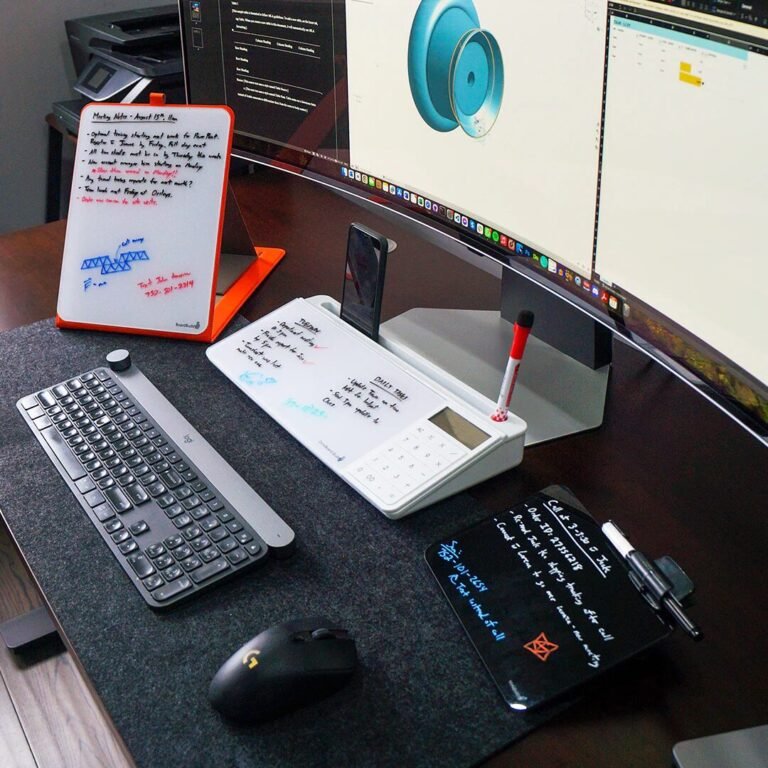Technology is no longer just part of our lives it shapes nearly every decision, habit, and interaction we have. From how we work and learn to how we connect and stay healthy, technology continues to evolve faster than most of us can keep up with. In this post, we will explore the biggest technology trends driving change today, the real world impact they are creating, and what the future could look like as innovation keeps accelerating.
1. The Rise of Artificial Intelligence
Artificial Intelligence has become the most talked about technological force in recent years and for good reason. AI systems now power everything from smart assistants to advanced medical diagnostics. What used to be science fiction is now part of everyday life.
AI tools like ChatGPT, Midjourney, and others are transforming creative industries, while machine learning models help companies predict market trends and personalize user experiences. In healthcare, AI is detecting diseases earlier and assisting doctors in treatment planning. However, the challenge remains how do we balance automation with ethical use, privacy, and the human touch.
Key takeaway AI will continue to evolve, but the focus must shift from what it can do to how responsibly it can do it.
2. The Growth of the Internet of Things
The Internet of Things connects everyday devices from thermostats and lights to cars and industrial sensors to the internet. The goal is simple make systems smarter and lives more convenient.
IoT has already changed how we live. Smart homes can optimize energy use, wearable devices track our health, and connected cars can alert drivers to potential hazards. Businesses also benefit from IoT, using real time data to improve efficiency and reduce costs. The downside is that the more devices are connected, the more data is exposed. Security and privacy remain major concerns that need constant attention.
Example Smart cities powered by IoT are becoming a reality, using sensors to monitor air quality, traffic, and waste management, creating cleaner and more efficient urban environments.
3. Cloud Computing and Edge Technology
Cloud computing has become the foundation of modern digital life. It allows users and businesses to store, access, and process massive amounts of data remotely. Services like Google Drive, Amazon Web Services, and Microsoft Azure make collaboration, scalability, and innovation more affordable.
But as cloud use grows, so does the need for faster real time processing. That is where edge computing comes in it brings data processing closer to where it is generated, reducing latency and bandwidth use. This shift is essential for technologies like autonomous vehicles and industrial automation.
Key insight The future lies in a hybrid model where cloud and edge computing work together to deliver speed, security, and flexibility.
4. The Expansion of 5G Connectivity
5G is more than just faster internet it is a complete upgrade to how digital systems communicate. With its ultra low latency and high speed data transfer, 5G supports innovations like virtual reality, remote surgeries, and smart infrastructure.
This technology will fuel new industries, especially in entertainment and communication. Imagine seamless augmented reality shopping or real time translation during international meetings. The potential is huge, but the rollout also requires massive infrastructure investments and regulatory collaboration.
Looking ahead As 5G matures, it will unlock new experiences that we have not yet imagined, laying the groundwork for the next phase of digital transformation.
5. Sustainable and Green Technology
Sustainability is now a core part of technological progress. The push for renewable energy, eco friendly devices, and efficient data centers shows how innovation can align with environmental responsibility.
Tech giants are investing heavily in reducing carbon footprints through smart grids, solar powered data centers, and recyclable materials. At the consumer level, electric vehicles, energy efficient appliances, and green computing are helping people make more responsible choices.
Practical tip Future ready businesses will succeed by blending technology with sustainability, proving that innovation and environmental care can go hand in hand.
6. The Future of Human Technology Interaction
As technology advances, our relationship with it will continue to evolve. Virtual reality, augmented reality, and mixed reality are merging the digital and physical worlds. Remote work, digital classrooms, and immersive gaming are already everyday examples.
Soon, the concept of the metaverse, a shared virtual space for work, play, and social connection, could redefine how we interact entirely. It is not just about wearing a headset, it is about living in a more connected and customizable world.
Prediction The next decade will blur the lines between digital and physical spaces, offering experiences that are more personalized, accessible, and immersive.
7. Challenges Ahead
While technology opens exciting opportunities, it also raises serious concerns such as cybersecurity threats, data privacy, misinformation, and job displacement. As automation and AI grow, industries must prepare for reskilling and ethical tech use.
Governments, organizations, and individuals will need to work together to build policies that promote innovation without compromising human rights or social balance.
Conclusion
Technology will continue to redefine how we live, work, and think. The challenge is not keeping up, it is learning how to use it wisely. The future belongs to those who adapt, innovate responsibly, and balance progress with purpose.
FAQs
-
What are the top technology trends right now
Artificial intelligence, IoT, 5G, and green tech are among the most influential trends shaping 2025 and beyond. -
How is technology impacting daily life
It is improving healthcare, communication, business efficiency, and personal convenience while creating new challenges like data security and automation ethics. -
What will technology look like in the next decade
Expect smarter automation, wider 5G use, sustainable energy tech, and immersive digital experiences powered by AI and AR.




